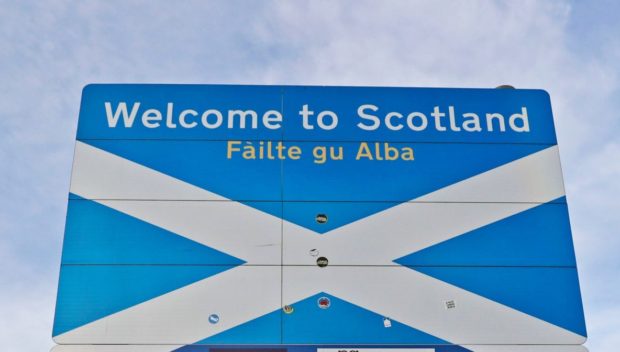
Four in ten Scots believe that English tourists should not be allowed to travel into Scotland without quarantining, a YouGov poll has found.
The poll – which asked 1,134 Scots their view on tourists entering from other countries without needing to quarantine – reported 47% of Scots quizzed support English tourists being able to enter the country without a period of isolation.
The research also revealed significant discrepancy along political lines when Scots were asked whether they support or oppose allowing tourists into the country.
More than half (54%) of SNP voters surveyed said they do not want English tourists to cross the border without quarantining, compared to 37% of Scottish Labour voters and 19% of those who voted for the Scottish Conservatives at the 2019 election.
Just over a third (34%) of SNP voters support the current system of allowing English tourists in without requiring them to quarantine as opposed to 49% of Labour voters and 65% of Tory voters.
Independence-supporting Yes voters from 2014 oppose letting in English tourists by 52% to 36% while No voters support allowing English tourists into Scotland by 55% to 30%.
The poll was carried out a week after Scottish independence campaigners staged a protest at the border calling for people from England to be banned from entering or to impose a mandatory quarantine period.
Scots are less likely to object to visitors from other parts of the UK, with 29% opposed to people coming from Wales and 28% of respondents wanting to block tourists from Northern Ireland. In contrast, 56% support allowing unrestricted access to Scotland from the two countries.
Support for tourists from the Republic of Ireland also outweighs opposition, by 53% to 31%.
Visitors from further afield are less welcome, the survey suggests, with more opposition than support for allowing unrestricted travel for Danish, Swedish, German, Spanish, Italian, Chinese and American tourists.
Just 10% support allowing American tourists into Scotland without having to quarantine, contrasted with 81% against the idea.
Welsh people are slightly more willing than Scots to accept travellers from the rest of the British Isles, with 37% wanting English tourists to stay away compared to 50% who would welcome them.
The 1,021 Welsh respondents also favour Scottish, Northern Irish and Irish tourists being able to visit without quarantine measures by 58% to 28%, 53% to 30% and 50% to 32% respectively.
Opinions also differ by political persuasion in Wales, with 54% of Plaid Cymru voters opposed to English travellers compared with 44% of Labour voters and 24% of Tory voters.
A total of 37% of Plaid Cymru voters from 2019 support allowing unquarantined travel into Wales, 44% of Labour supporters and 65% of people who voted Conservative.
The survey also looked at whether Scots and Welsh people would be willing to cross any borders – internal and international – for a summer holiday this year.
Few Scots would consider going to England (36%) or Wales (32%) on holiday this year.
Welsh people are more willing to cross nearby borders: 49% are open to going to England and 43% might travel up to Scotland.
Both are unlikely to go to Ireland or Northern Ireland, with approximately a quarter saying they would consider crossing the Irish Sea.
Willingness to travel further afield plummets by comparison. Among both national groups, only 10% and 12% respectively would be willing to visit any of the countries in continental Europe that YouGov asked about.
China and the US are even less appealing: just 5% of Scots and 6% of Welsh people would consider going to America. Asked about travel to China, the figures fall to 2% and 3% respectively.

Enjoy the convenience of having The Sunday Post delivered as a digital ePaper straight to your smartphone, tablet or computer.
Subscribe for only £5.49 a month and enjoy all the benefits of the printed paper as a digital replica.
Subscribe